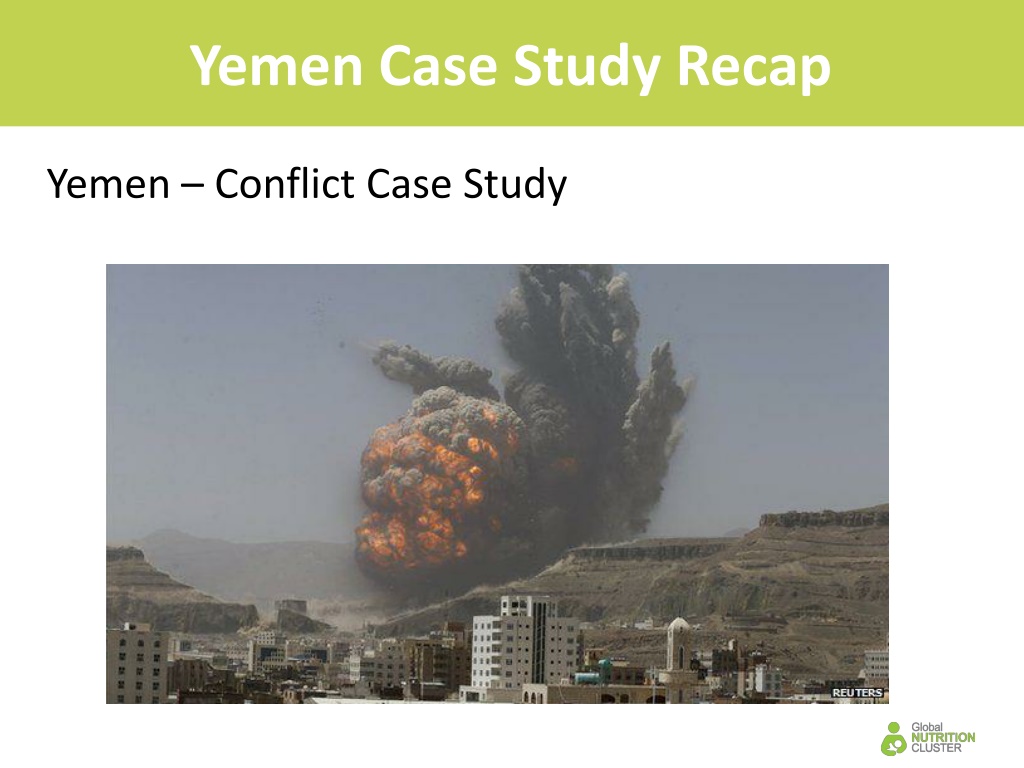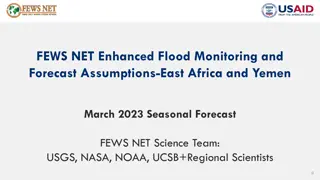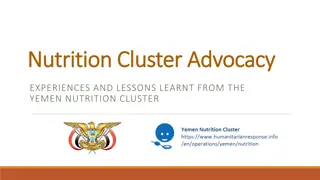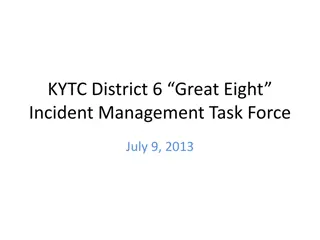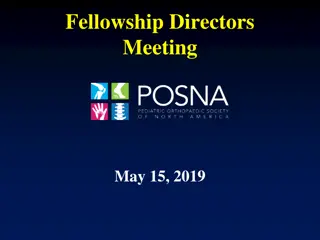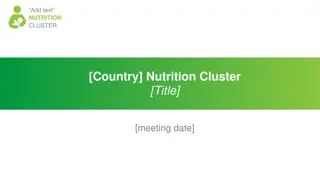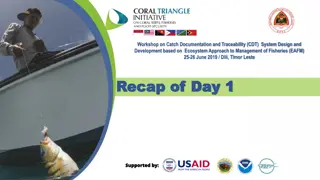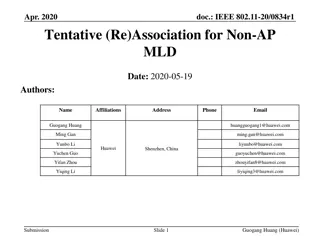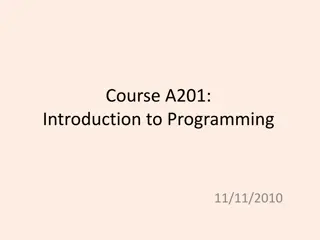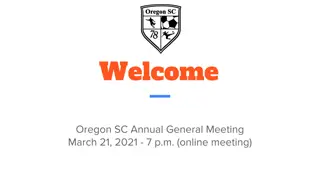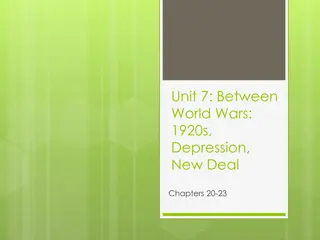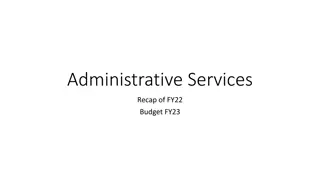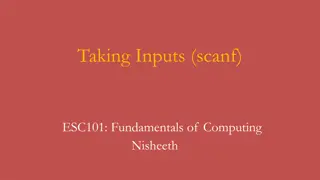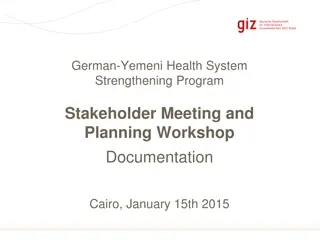Yemen Case Study Recap
This case study recap focuses on the Yemen conflict, discussing the challenges faced, including unsafe travel conditions, displacement of a million people, and the struggles of humanitarian agencies to meet needs. The closure of international airports and Aden seaport, skyrocketing food and fuel prices, and the need for people to travel through dangerous waters to reach safety are also highlighted. The content includes updates on nutrition cluster coordination meetings and simulation schedules, as well as debrief questions for small group and plenary meetings.
Download Presentation

Please find below an Image/Link to download the presentation.
The content on the website is provided AS IS for your information and personal use only. It may not be sold, licensed, or shared on other websites without obtaining consent from the author.If you encounter any issues during the download, it is possible that the publisher has removed the file from their server.
You are allowed to download the files provided on this website for personal or commercial use, subject to the condition that they are used lawfully. All files are the property of their respective owners.
The content on the website is provided AS IS for your information and personal use only. It may not be sold, licensed, or shared on other websites without obtaining consent from the author.
E N D
Presentation Transcript
Yemen Case Study Recap Yemen Conflict Case Study
Scenario Update Road travel is extremely unsafe 1 million people displaced Humanitarian agencies struggling to meet needs International airports and Aden seaport are closed Food and fuel prices have skyrocketed. Yemen imports 100 per cent of its fuel. People are travelling across pirate- infested waters to reach safety in Djibouti and even Somalia. Partnering with the government will not be possible at all times.
2.4 Nutrition Cluster Coordination Meeting
NCC Meeting Objectives The objectives of today s Nutrition Cluster meeting are to: understand the main priorities for nutrition in the context of the recent crisis agree on the overall aim or goal of the nutrition cluster discuss and agree upon the primary objectives of the Nutrition Cluster.
NCC Simulation Schedule Time Task 15 min Scenario review and preparation 45 min Nutrition Cluster Coordination Meeting 30 min Small group feedback Break 30 min Plenary feedback
Small Group Meeting Debrief Questions to consider in the meeting debrief: What worked well and and what didn t? How could the meeting have been improved? How did you decide what your group s priorities were? What personal lessons have you learned over the course of this meeting? What will you do differently in the future?
Plenary Meeting Debrief From a people-centred focus: What can the cluster do to ensure the views and priorities of affected people are considered when setting priorities? What about ways to engage with and promote local and national authorities and partners in the process? How do we make sure that other needs, gaps and priorities are shared with and addressed by other clusters or actors?
Tips for AAP in NCC meetings Not all meetings need to discuss AAP, but All cluster meetings and working groups can include quality and accountability as a regular agenda item for discussion An AAP or community engagement working group may be a way to get practical ideas on what the cluster can do and an opportunity to link with similar groups in other clusters Building trust and a culture of continuous improvement in meetings can help encourage partners to share mistakes, look for advice on quality and accountability issues
